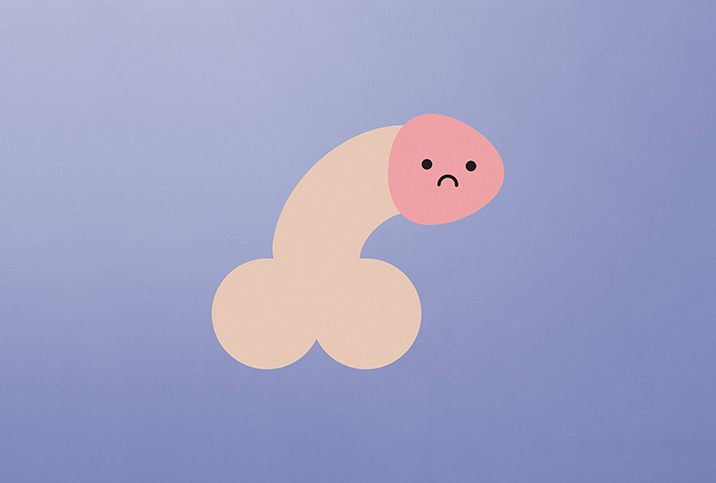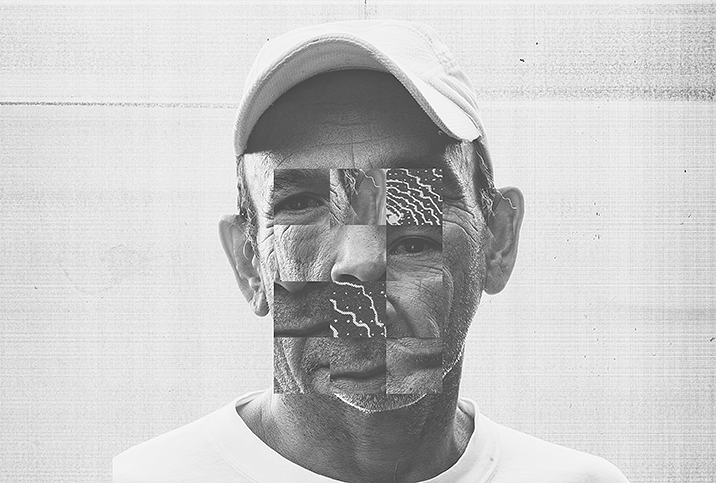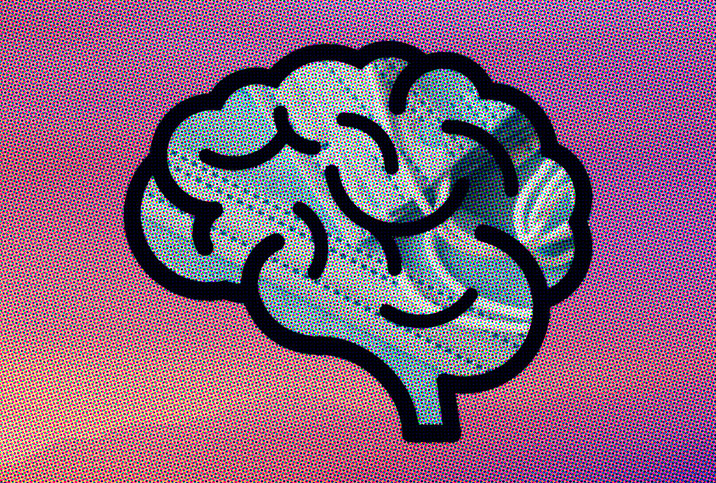ED Is Not Just a Physical Problem

Call it optimism, naivete or simply laziness, but we humans seem obsessed with finding a silver bullet to our problems. Just think of all those clickbait ads you've seen claiming that "one weird trick" will help you lose weight fast without diet or exercise, or banish migraines for good.
So perhaps it's not surprising that a lot of men expect a little blue pill to be a magical cure-all for erectile dysfunction (ED). Unfortunately, ED isn't only skin deep.
"Many men incorrectly see erectile issues as a purely physical phenomenon. They think they just need a pill to fix the problem," said Justin Lehmiller, Ph.D., a social psychologist and research fellow at Kinsey Institute at Indiana University and a resident sex researcher for Astroglide, a lubricant manufacturer headquartered at Vista, California. "As a result, a lot of men with ED will attempt to find a quick fix with Viagra rather than dealing with the complex psychological issues that often underlie this problem."
Ignoring these issues can take a serious toll on your psyche, as studies have shown that ED is associated with higher levels of depression and anxiety. Toughing it out on your own is not just bad for your mental well-being, it's also bad for your erectile performance in the long run.
Which came first, the ED or the anxiety?
The complicated concept about ED and mental health issues is that they have a bidirectional relationship, Lehmiller said.
"Experiencing erectile problems can lead to mental health issues, such as depression and performance anxiety," Lehmiller said. At the same time, he added, "depression, anxiety and other mental health problems can certainly contribute to erectile problems."
For example, when someone is anxious, they might be tensing up too much, constricting their body and not allowing blood to properly flow, said Kyle Zrenchik, Ph.D., a clinical sexologist and couples and sex therapist at ALL IN Therapy Clinic in Minnetonka, Minnesota
"Our bodies are not designed to get erections when we are in fight-or-flight mode," he said. "We're designed to run away from the bear that's chasing us."
And that can lead to a vicious cycle, according to Erica Cramer, a licensed clinical social worker and therapist who specializes in dating and relationships at Cobb Psychotherapy in New York City.
"Men who experience ED issues that would otherwise correct themselves or may have been isolated incidents can often experience anticipatory anxiety around their erectile functionality and, as a result, prolong or worsen the situation," Cramer said.
Learning whether your ED is caused by mental health issues or your mental health issues are a result of ED will help you get to the root cause of the issue—and, ultimately, the appropriate treatment—faster. But in either case, therapy can be helpful.
"There really is no case of erectile issues where one's psyche isn't also affected," Zrenchik said.
Taking the first step
It's not always easy for men to seek help, especially when it comes to something as personal and sensitive as erection troubles. Plus, a lot of people don't have a therapist they see regularly, so taking that first step isn't always easy. Video visits have become a viable option for most people, and more physicians and therapists have added them as a service. Giddy telehealth makes it easy to get connected to a qualified healthcare professional who can help with a variety of conditions, including ED.
"It's one of those issues that men will avoid until the end of time. It's crazy because they want sex, but it's just seen as such an admission of guilt or failure because of all this macho BS," Zrenchik said.
Even if they do seek help, they might try to skirt the real issues at first.
"Generally, if a man seeks therapy for this problem, he will initially express concerns about something else—his job or relationship, for example," Cramer said.
Other times, they'll find it easier to talk about their mental health challenges than their problems in bed.
"Depression and anxiety are often more comfortable topics than ED. They are more socially acceptable topics that people feel more comfortable gravitating toward," Cramer added.
One strategy she's found helpful for getting men to open up is discussing the physical symptoms of anxiety.
"[I'll say], 'I know you've been struggling with your anxiety. How have you been feeling physically? Yes, it's very common to have tension in your neck and shoulders when you've been anxious,'" Cramer said. "Once you explain that the mental and physical can go hand in hand, your client is more likely to open up and verbalize other issues and symptoms, and that paves a path to a solution."
Building trust goes a long way, as well. Zrenchik noted that men don't usually discuss erection issues in their first session.
"But after they get comfortable, a man can actually open up pretty easily if the therapist invites the conversation," he said.
Stop psyching yourself out
Many experts agreed that the best approach ED patients can take during sex is to simply get out of their own head.
"Learning to be in the moment during sex, such as by practicing mindfulness exercises, is helpful for some men, particularly in cases where erectile issues stem from problems with distraction and performance anxiety," Lehmiller said.
Zrenchik recommends a three-step process with his patients.
The first step is noticing tension in your body, particularly in your perineum, the area between your scrotum and your anus. When muscles in this area contract too tightly, it restricts blood flow to the penis.
"A lot of people don't even know that they're carrying so much tension. Men will kind of want to force the erection up, which doesn't happen. It actually makes things worse," Zrenchik explained.
The second step is releasing that tension.
"This can be through breathing exercises, visualization or progressive muscle relaxation," Zrenchik said. "You're just releasing the tension, the tightness, the worry, the fear from your body. Let it go."
The third and final step is focusing on pleasure. Zrenchik suggests concentrating on your senses:
- What are you seeing?
- What are you touching?
- What are you tasting?
- What are you smelling?
- What are you hearing?
"We've got to get the man out of his head, not worrying about what's happening outside of the bedroom. Just notice the tension, release it from your body and then focus on pleasure," Zrenchik advised. "Then you can usually notice yourself regaining your erection."
Even if your ED isn't psychogenic in origin, exercises such as this during sex can still help make the process more enjoyable.
"Being willing to explore and experiment with different activities and pursue other forms of intimacy in moments where the penis isn't doing what you want it to can allow you to maintain a healthy sexual connection," Lehmiller said.
Solving your issues for good
It's OK if your ED and/or associated hang-ups aren't instantly solved after one round of mindfulness exercises or a single therapy session.
"For some people, the issue is deep. It could be connected to mental health issues, past historical trauma or really toxic relationships," such as a partner who repeatedly made fun of your ED, Zrenchik said. "Sometimes you've got to work through that stuff. It can be as short as a couple of hours all the way to a long, intensive treatment."
A supportive partner by your side can reinforce your efforts.
"It's helpful to have a partner who is understanding and doesn't take the other's erectile issues personally, because when erectile problems become a source of conflict, that can end up making the problem even worse," Lehmiller said. "If your partner has ED and this is creating distress and/or relationship problems, encourage them to seek help."
Lehmiller noted, however, that men experiencing ED should receive a thorough evaluation to identify the root cause.
"Erectile issues can be due to physical health conditions, psychological problems, relationship issues or some combination of factors," Lehmiller said. "The best course of treatment will depend on the underlying cause."
The most important detail to know is that you have no reason to be ashamed of ED.
"People get hiccups, acne and sprained ankles just as often as they experience panic attacks and ED. Mental health is health. No problem is too big or small to discuss, and no one is the first person to have these issues," Cramer said. "Take the pressure off of yourself and normalize that sometimes things just don't work as planned, and you'll at least feel 50 percent better while you work it through."

















